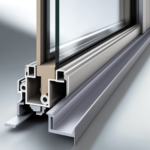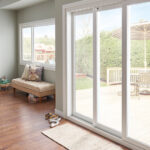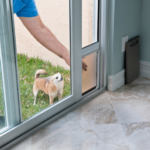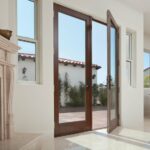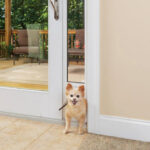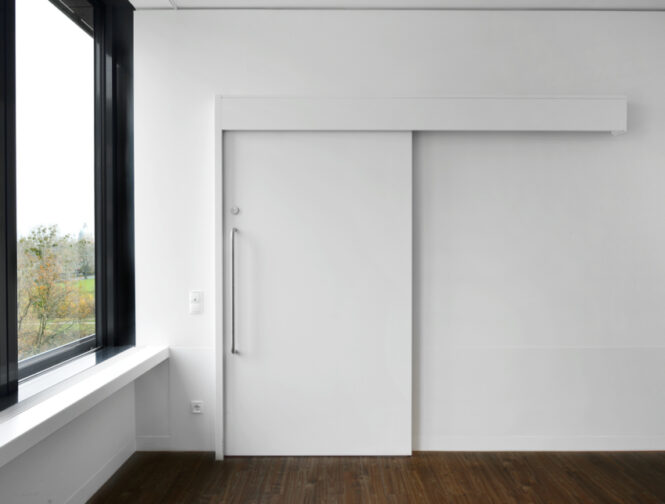
Soundproofing is one of the most effective ways to lower the noise from outside. With conventional doors, this is quite easy to do. Sliding door soundproof is a bit different, but also not difficult to do.
Overall, there are 3 basic types of sliding doors: glass door, pocket door, and barn door. For patio doors almost 85% using glass material as it can let the light in. But for inside the house or as part of decorative element, more than 60% using wood or metal as the materials.
So, we have to consider a bit different way to make the soundproof for each of them. Not only the position of the door but also the materials used.
1. Soundproofing Glass Sliding Door
The most important thing to make soundproofing work is to make sure you seal all the gaps. Or, any kind of holes that might let in unwanted noise. These are the steps to follow:
- Seal all the gaps. Use the good weatherstrip to create an air-tight seal between the frame and the door.
- Install a door sweep to cover the gap between the door and the floor.
- Use acoustic caulk to seal any small cracks between the frame and the wall.
Simply by following those steps, the unwanted noise should be noticeably less. But there is another way to add to this if you want to. Such as:
- Installing an acoustic curtain on the door. Since this is a glass sliding door, this curtain can easily move out if you want to let the light in.
- By make a laminated or double or triple-pane glass door. But this is a really time consuming and expensive way to soundproof a glass door.
2. Soundproofing Pocket Sliding Door
Compares to soundproofing a glass door, it is easier to soundproof a pocket sliding door. Because you don’t have to worry about letting the light through. That could give you more options in installing soundproofing materials.
Note to consider: Because the door has to fit inside the pocket, all materials used to thicken the panel should be as thin as possible. So, make sure to take measurements beforehand.
To seal the door, you can follow the same steps as the glass sliding door mentioned above. But take note of one different matter that is:
- Use a brush weatherstrip to seal the gap to create an air-tight seal between the frame and the door. The bristles will bend when you slide the door, so it will not rip out. It is important to adhere this tape to the inner side of the pocket wall. That way, you have both sides as seals.
There is another way to add to this if you want to. Because you don’t have to worry about the light like a glass door. Such as:
- Installing an acoustic curtain on the door.
- Alternatively, you can install an acoustic blanket on the door. Attach them by using a lot of Velcros because it’s quite heavy. Remember to consider the overall thickness to keep the door fit in the pocket.
- Another way is to add mass to the door. You can use mass-loaded vinyl or rigid foam insulation. But these two are heavy and thick. They need more detailed ways to attach them, such as using nails that could ruin the door itself.
3. Soundproofing Barn Sliding Door
Compared to the first two types of sliding doors, a sliding door soundproof for barn door type is the easiest. You got plenty of options to choose from. But first of all, always seal the gap. The steps are the same as the pocket door (mentioned above).
The good thing about the barn sliding door is that it does not need to fit inside a pocket. That way, you don’t have to worry about the thickness of the door. So, you got additional alternatives in soundproofing. Such as:
- Add mass to the door. Such as using rigid foam insulation or mass-loaded vinyl. Installing it is easy, even with nails. Because the door is usually made of wood or plywood or even metal. But to make it look nicer, you may need to add an extra layer of the door material to cover it up.
- Attaching acoustic panels on the door. Usually made of cheap foam and easy to install. But since it’s thin, the sound reduction may not be much.
Making a sliding door soundproof turns out to be quite easy. But you can always take advantage of the professional installer if you’re not sure. But remember to consider the type of door you have before you choose the material used in soundproofing.
